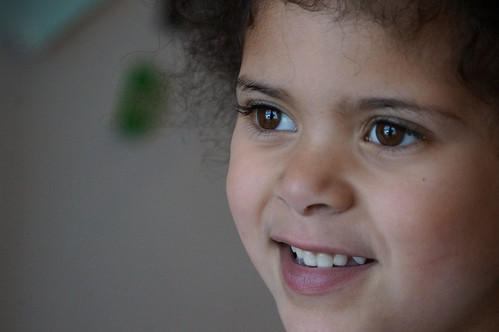On This Day
Published 10 years, 10 months pastEarlier today, Facebook announced a new feature called “On This Day”. With On This Day, you see pictures, posts, and other events that occurred on a given day. If you’re familiar with Timehop, it seems very much like a Facebook-only Timehop. That will probably seem limited and broken to actual Timehop users, but for the vast majority of Facebook users, it will be a new and potentially very welcome feature.
As you can imagine, given what happened with Year in Review, I’m very interested by On This Day. I haven’t interacted with the actual product yet, so I don’t know what kinds of opt-in or opt-out features will be present. If any. From the screenshots in the Facebook announcement, it looks like they’ve taken a much more neutral direction with the visual design. There are calendar pages and abstract photos, with few of them expressing much in the way of emotional content. An exception is seen at the top center of the banner image on the announcement, depicting what appears to be a woman in love, but that’s actually a decoration on the banner, instead of a UI component. Whether those sorts of things will show up in the UI, I don’t know.
But this is what I wonder: is Facebook about to hurt a bunch of people? From the announcement:
To see your On This Day page, you can click on the On This Day bookmark, search for “On This Day,” or visit facebook.com/onthisday. You might also see a story in your News Feed.
Putting “a story in the News Feed” is exactly how Year in Review became a viral news story. And it’s what distinguishes On This Day from Timehop or ThinkUp (which has “your most popular update” features).
If I install Timehop, for example, I know what I’m getting into. I’m actively, consciously deciding to revisit events from past years by way of Timehop. I can decide not to launch it at all on certain days, if I know what I see would be too painful.
On This Day, on the other hand, is part of an existing ecosystem. Dropping On This Day into the Facebook news feed without consent is very much like having Timehop install itself onto your smartphone and then auto-launch, all without asking. If this happened, we’d (rightly) take the responsible parties to task. Patronizing dismissals that “you use a smartphone, you get what you deserve” would be relatively thin on the ground, whereas I’m sure there will be plenty of that directed toward any Facebook user upset by what an On This Day new feed entry shows them. That was certainly the leading line of condescension around the Year in Review news feed post.
There isn’t much more to go on in the announcement, though I did notice:
…you can choose to subscribe to notifications so you’ll be alerted when you have memories to look back on. You can also edit and delete old posts, or decide to share your memories with friends.
Editing or deleting old posts is interesting, if a bit troubling to the historian in me, and the ability to sign up for notifications is a welcome sign of opt-in ethics, but what I notice here is what’s missing: I don’t see any reference to an ability to opt out of On This Day, either for certain days or altogether. It might be there and simply not referred to in the product announcement, but I wonder if this is something that Facebook users will simply have to get used to.
The timing of this has a personal resonance. As I wrote about yesterday, we just passed the first anniversary of the day Kat and I were told about Rebecca’s second tumor. For the next eleven weeks, both our posts and pictures from last year, wherever they’re housed, will form a chronicle of the last days of our daughter’s life. How will we react to Facebook, how will we feel about our experience there, if On This Day constantly reminds us of those events? Will this product increase our affinity with Facebook, or our antipathy? Perhaps we might go to Facebook to catch up with friends and joke around with them a bit, as a form of mental respite. Or, perhaps, we would have done that, but now will be unable to do so. We’ll soon find out.
Lest anyone misunderstand, this isn’t just about Facebook. It’s about every service or product that seeks to increase user affinity, and avoid user antipathy. Facebook just happens to be providing some very obvious grounds on which to base these conversations. Given their line of business and scale of operation, that’s probably to be expected. I’ll be following this with great professional and personal interest.

